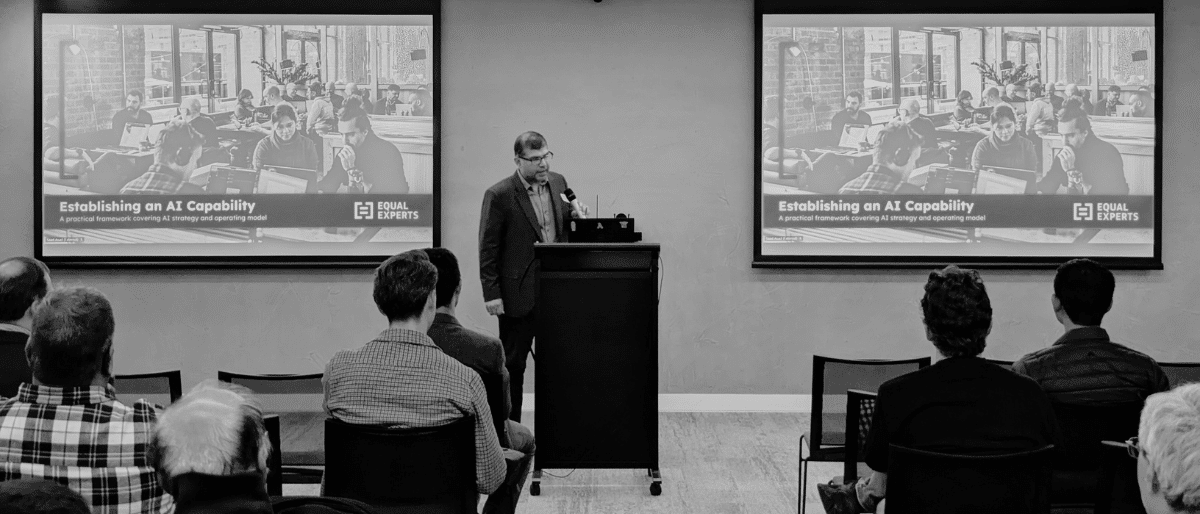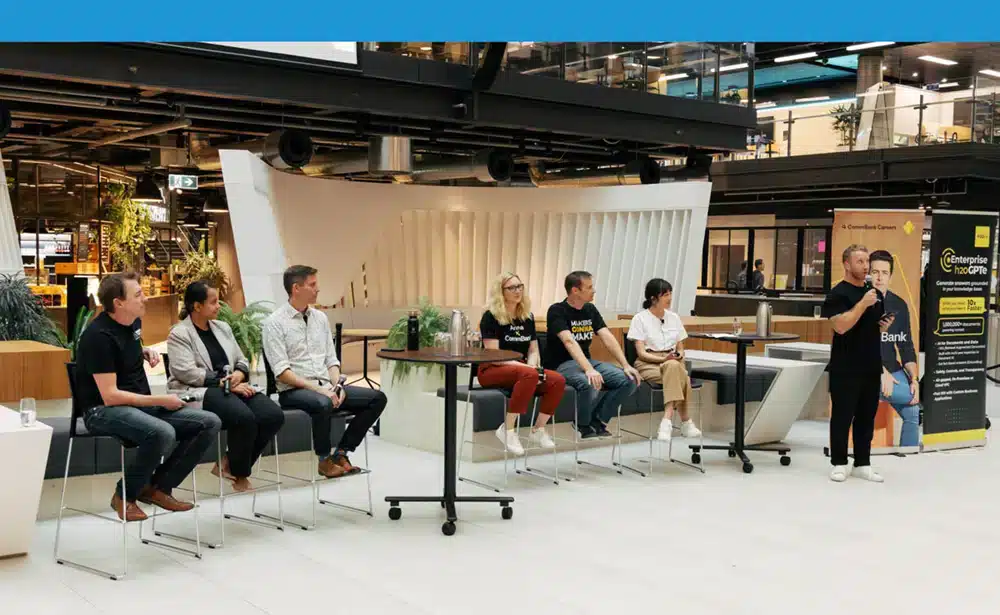



Finance and Superannuation industry leaders shared their thoughts about Generative AI at our latest Melbourne Expert Talk. At Beyond Gen AI: Navigating how businesses realise the benefits of AI, the panel discussed the importance of keeping humans in AI processes, data quality and risk management.
August 1, 2024https://www.equalexperts.com/blog/ai/how-to-test-conversational-assistants-using-behaviour-driven-development/ Test Conversational Assistants with BDDApril 23, 2024https://www.equalexperts.com/blog/ai/balancing-business-opportunities-with-responsible-innovation-in-generative-ai/
Test Conversational Assistants with BDDApril 23, 2024https://www.equalexperts.com/blog/ai/balancing-business-opportunities-with-responsible-innovation-in-generative-ai/ Balancing business opportunities with responsible innovation in Generative AI
Balancing business opportunities with responsible innovation in Generative AIWhy organisations need to consider transparency, accountability and human-centricity when implementing artificial intelligence and balance business benefits with responsible innovation.
April 17, 2024https://www.equalexperts.com/blog/ai/ai-customer-experience-and-cybersecurity-the-top-tech-topics-for-australian-businesses-in-2024/AI, customer experience and cybersecurity: The top tech topics for Australian businesses in 2024January 29, 2024